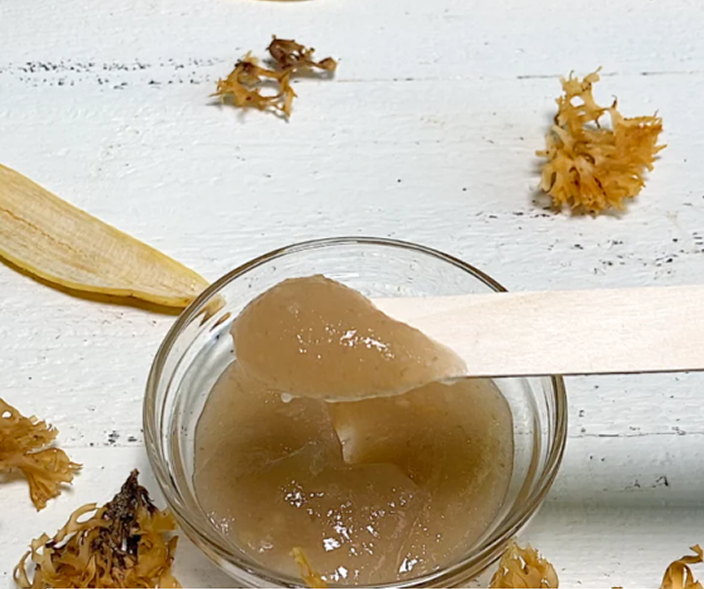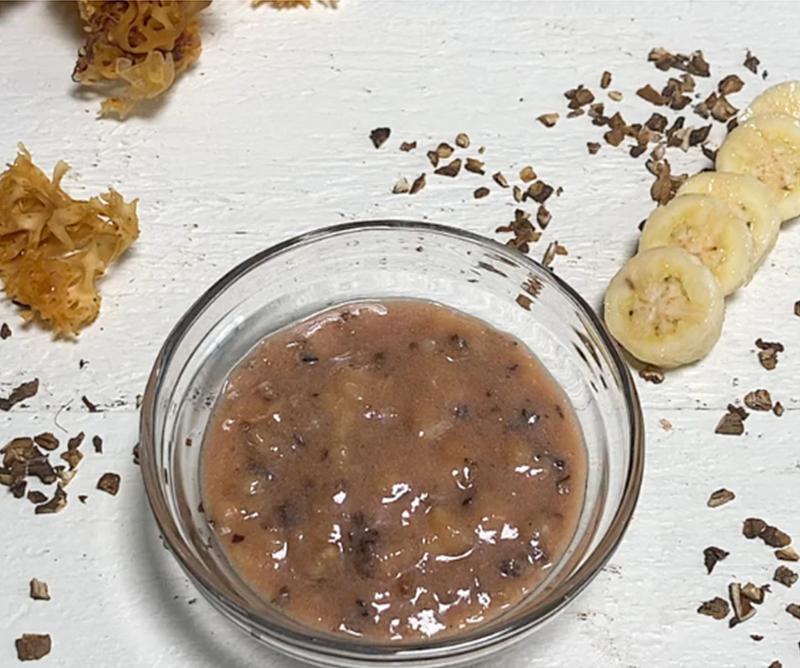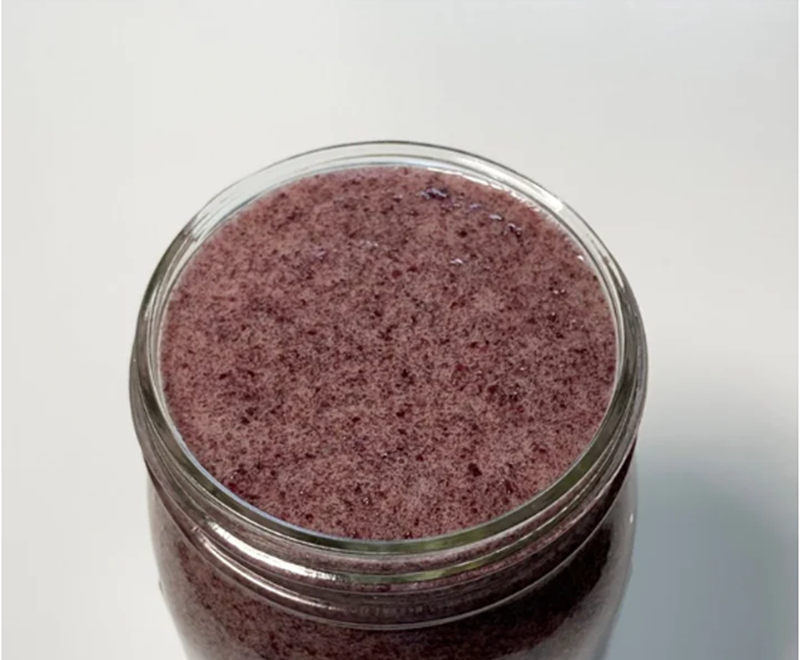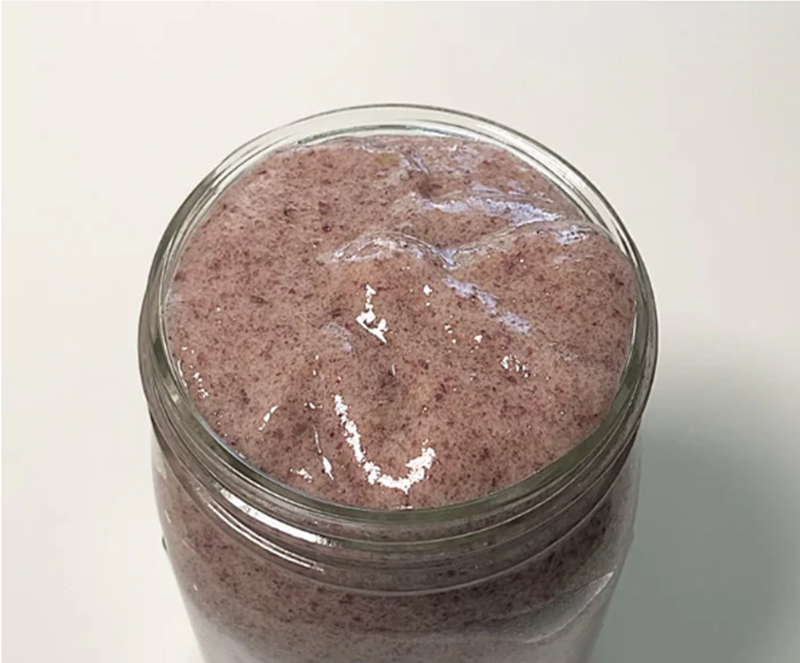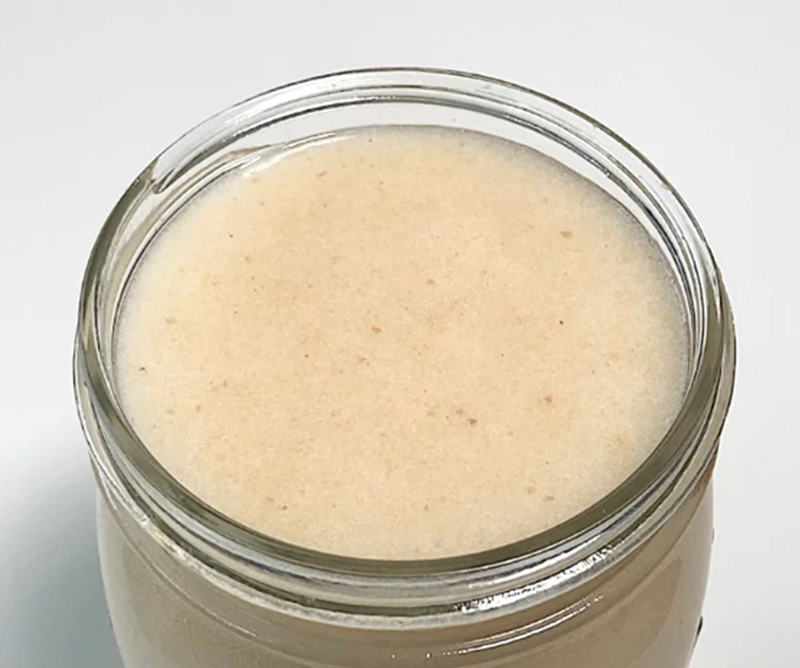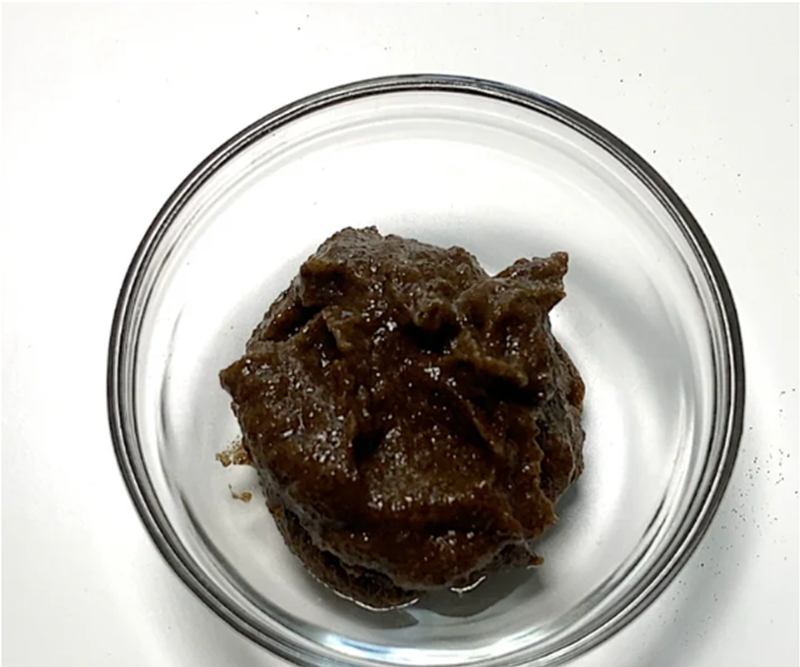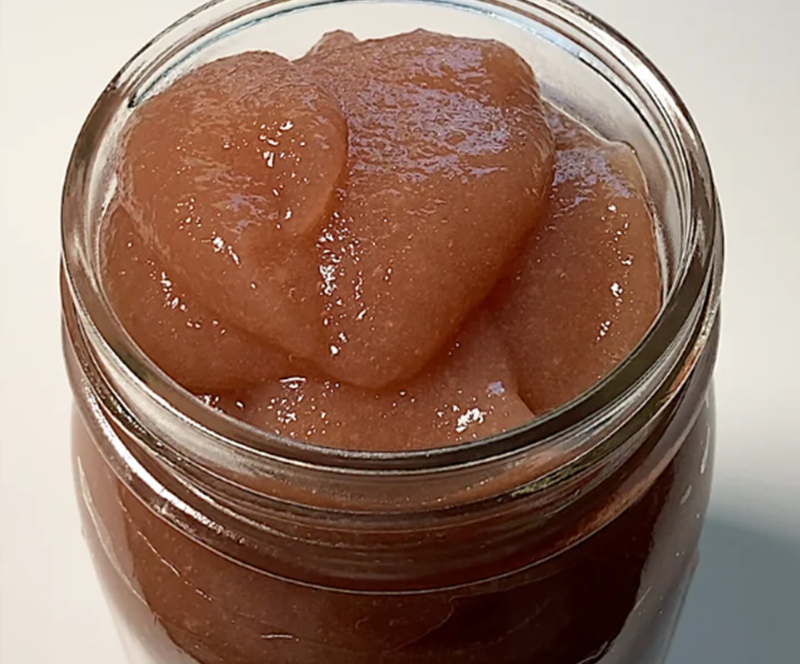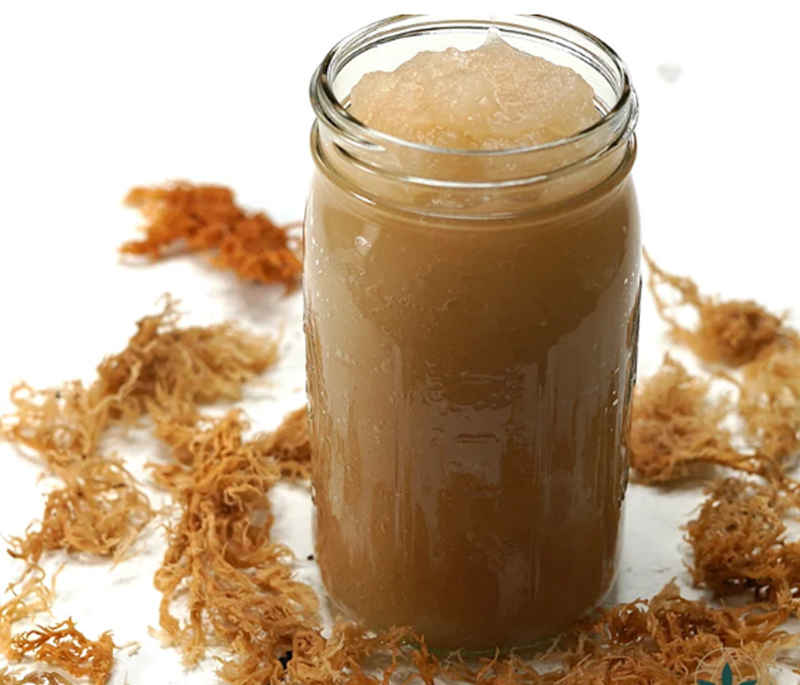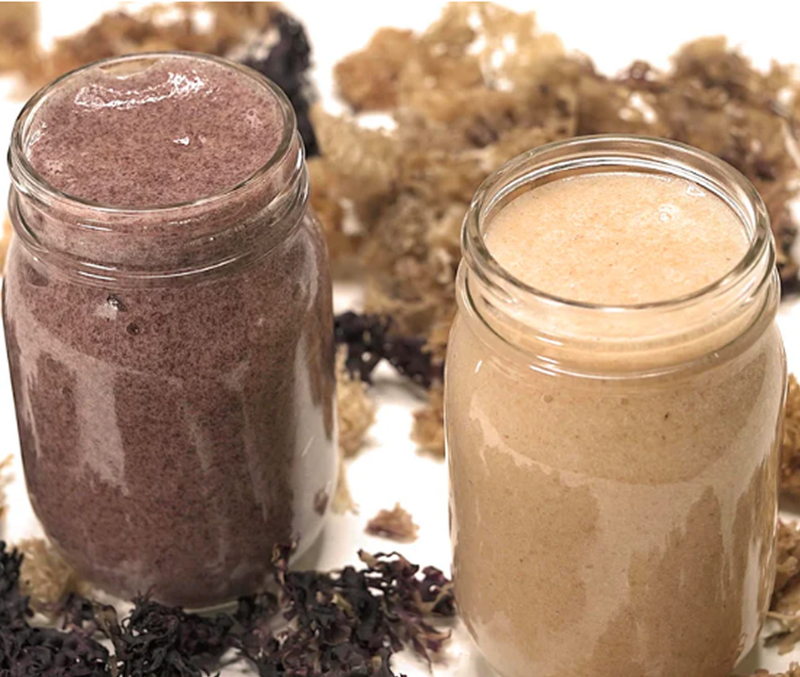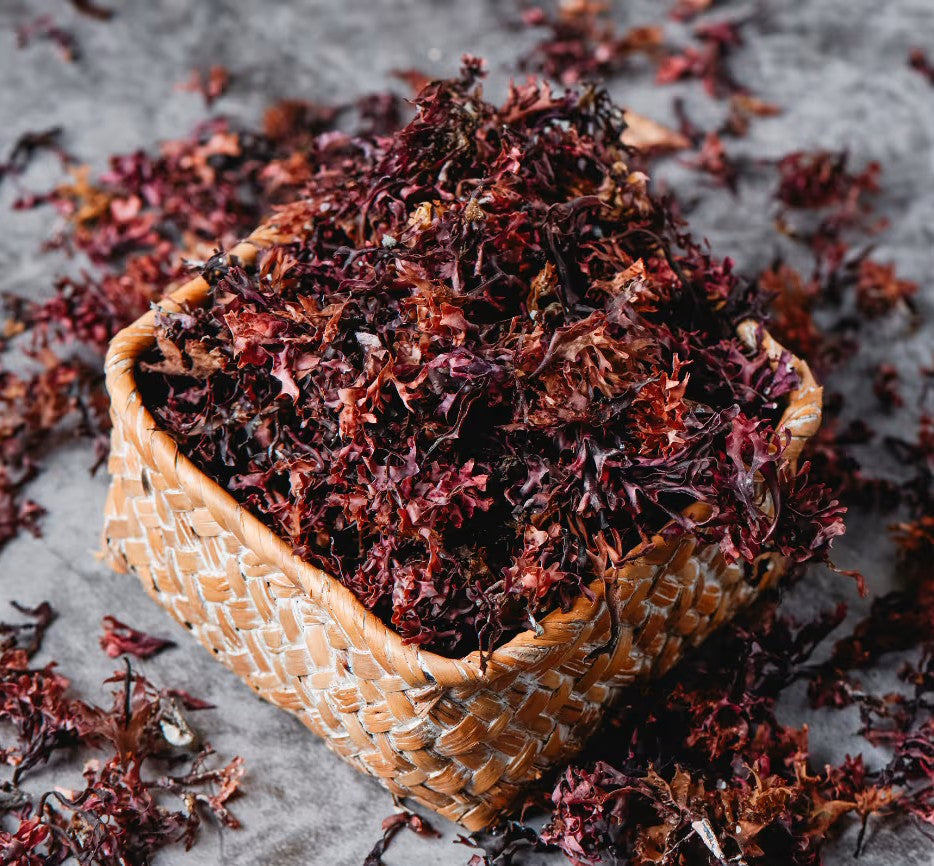

Sea moss, also known as Irish moss, has become a popular superfood due to its rich nutrient profile.* Packed with vitamins, minerals, and antioxidants, it has been praised for its ability to support immune health, improve digestion, and promote healthy skin.* However, like any supplement, it’s important to understand the potential side effects that can come with its use. In this article, we will explore the common side effects of sea moss, who should avoid it, and safety tips for its consumption.
Sea Moss Common Side Effects
While sea moss is generally safe for most people when consumed in moderation, there are some potential side effects that you should be aware of. Below are some of the common issues associated with sea moss:
Iodine Overload
One of the most significant side effects of consuming too much sea moss is iodine toxicity. Sea moss is naturally rich in iodine, a mineral essential for thyroid health.* However, excessive iodine can lead to thyroid dysfunction, including hyperthyroidism or hypothyroidism. Symptoms of iodine overload may include nausea, vomiting, fever, and a burning sensation in the throat.
Digestive Issues
Sea moss contains high levels of fiber, which can cause digestive issues, especially if consumed in large amounts. Some individuals may experience bloating, gas, and diarrhea. For people with sensitive stomachs or digestive conditions, sea moss may lead to discomfort. It’s recommended to start with small amounts to allow the body to adjust.
Heavy Metal Contamination
One concern with sea moss is its ability to absorb heavy metals like lead, mercury, and arsenic from the water it grows in. Consuming sea moss that has been contaminated with these harmful substances can lead to gastrointestinal problems, kidney damage, and other serious health issues. It is essential to choose high-quality, tested sea moss from pristine waters to reduce the risk of contamination. At Alkaline Herb Shop, all sea moss products are tested by a third party lab for heavy metals, identity, and microbes.
Allergic Reactions
Some individuals may experience allergic reactions to sea moss, particularly due to the presence of carrageenan, a substance used to thicken the sea moss gel. Symptoms of an allergic reaction can include itching, swelling, rashes, and difficulty breathing. If you have known allergies to seaweed or carrageenan, it’s best to avoid sea moss or consult a doctor before using it.
Thyroid Disorders
As mentioned, sea moss is high in iodine, and excessive iodine intake can lead to thyroid problems. This can be particularly concerning for people with pre-existing thyroid conditions such as Hashimoto’s disease or Graves' disease. Overconsumption of iodine-rich foods like sea moss can worsen symptoms and interfere with thyroid function.
Skin Reactions
Although rare, topical application of sea moss gel may cause skin irritation in some individuals. If you are using sea moss gel as a face mask or body treatment, it’s best to do a patch test first to check for any allergic reactions or irritation. If redness or swelling occurs, discontinue use immediately.
Who Should Not Take Sea Moss
While sea moss has numerous health benefits, it’s not suitable for everyone. Here are some groups of people who should avoid taking sea moss or consult a healthcare provider before using it:
People with Thyroid Disorders
Individuals with thyroid conditions, such as hyperthyroidism or hypothyroidism, should avoid sea moss unless given the all-clear by a healthcare provider. The high iodine content can disrupt thyroid function, making these conditions worse. If you have a thyroid disorder, it's essential to speak with your doctor before incorporating sea moss into your diet.
Pregnant or Breastfeeding Women
Pregnant and breastfeeding women should be cautious when taking sea moss. The excessive iodine in sea moss could affect thyroid function, and since iodine plays a critical role in fetal development, too much could be harmful. It’s always best to consult a healthcare provider to ensure it's safe for both mother and child.
People with Kidney Issues
Sea moss has the potential to strain the kidneys, especially in individuals with pre-existing kidney problems.* Because sea moss can accumulate heavy metals from the environment, it could worsen kidney function if consumed in large quantities. If you have kidney disease, speak to a doctor before using sea moss.
Individuals with Allergies
As mentioned earlier, sea moss can trigger allergic reactions, particularly due to carrageenan. If you have a sensitivity to seaweed or food additives like carrageenan, you should avoid consuming sea moss. Always check the product label to ensure it doesn’t contain any allergens.
Safety Use Tips
If you choose to incorporate sea moss into your diet, there are several tips to ensure you use it safely:
-
Moderation Is Key: Start with small amounts (1-2 tablespoons of sea moss gel) to see how your body reacts. Gradually increase the amount if you don't experience any side effects.
-
Choose High-Quality Products: Select wildcrafted sea moss that has been tested. At Alkaline Herb Shop, all sea moss products are tested by a third party lab for heavy metals, identity, and microbes.
-
Consult a Healthcare Provider: If you have any underlying health conditions or are pregnant, consult your doctor before using sea moss.
-
Monitor Your Iodine Intake: Keep track of all sources of iodine in your diet (such as iodized salt, dairy, and eggs) to avoid exceeding the daily recommended intake.
-
Know When to Stop: If you experience any adverse effects, such as digestive discomfort or skin irritation, discontinue use immediately and consult a healthcare professional.
Bottom Line
Sea moss is a nutrient-rich superfood that offers numerous health benefits, but it’s important to use it responsibly.* While it is generally safe for most people, excessive consumption can lead to side effects, including thyroid dysfunction, digestive issues, and heavy metal contamination. If you are in a high-risk group, such as individuals with thyroid disorders, pregnant or breastfeeding women, or those with allergies, it’s best to consult a healthcare provider before using sea moss. By following safety guidelines and using sea moss in moderation, you can enjoy its benefits without risking your health.
FAQs
What are the most common side effects of sea moss?
The most common side effects of sea moss include digestive issues such as bloating, gas, and diarrhea, as well as iodine overload, which can lead to thyroid problems. Allergic reactions, skin irritation, and heavy metal contamination are also potential risks associated with sea moss consumption.
Can sea moss cause allergic reactions?
Yes, some individuals may experience allergic reactions to sea moss. Symptoms of an allergic reaction may include itching, swelling, rashes, or difficulty breathing. If you experience any of these symptoms, discontinue use and consult a doctor.
Is there anyone who should avoid taking sea moss?
People with thyroid disorders, pregnant or breastfeeding women, individuals with kidney issues, and those allergic to seaweed or carrageenan should avoid taking sea moss unless advised by a healthcare provider. Always consult a doctor before incorporating sea moss into your diet if you have any pre-existing health conditions.
What should I do if I experience side effects from sea moss?
If you experience any side effects from sea moss, such as digestive issues, allergic reactions, or thyroid symptoms, stop using it immediately. Consult a healthcare provider to determine the best course of action. It’s essential to monitor your body’s reaction and avoid overconsumption of sea moss.
Is it safe to take sea moss with other supplements?
Sea moss can interact with certain medications and supplements, particularly those related to thyroid health.* If you're taking other supplements, especially iodine or thyroid medications, consult your healthcare provider to ensure there are no adverse interactions.





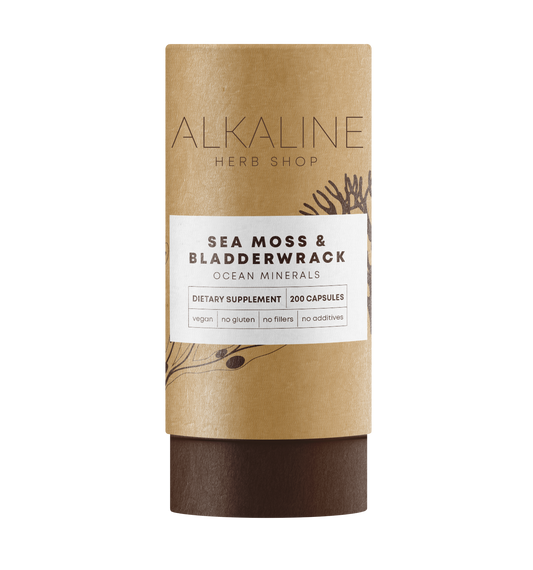
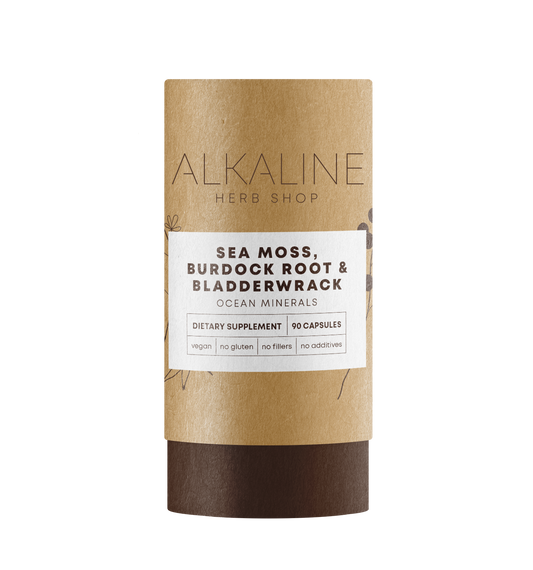
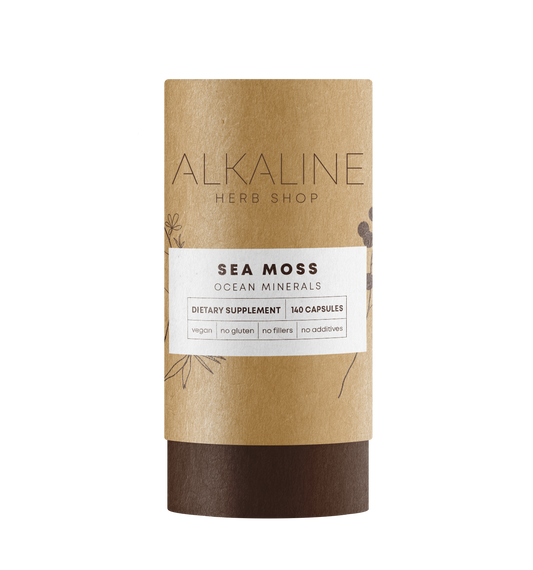
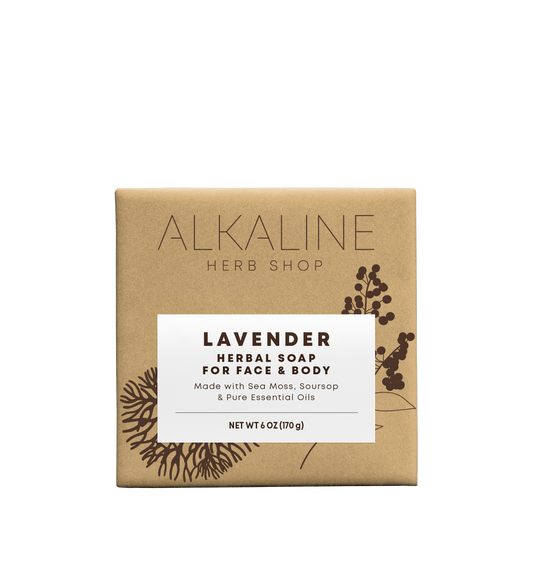
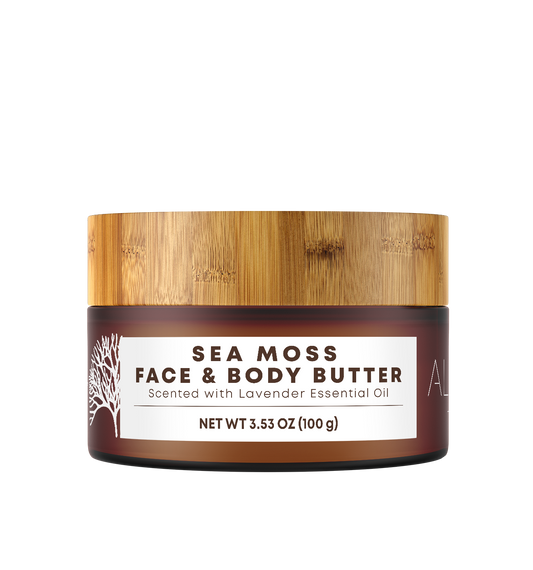
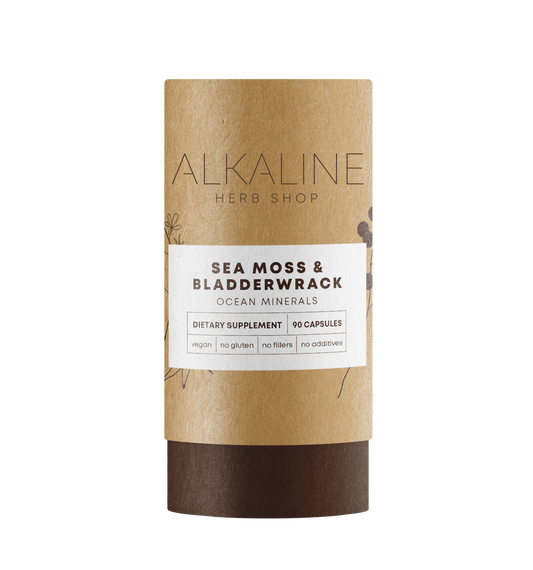
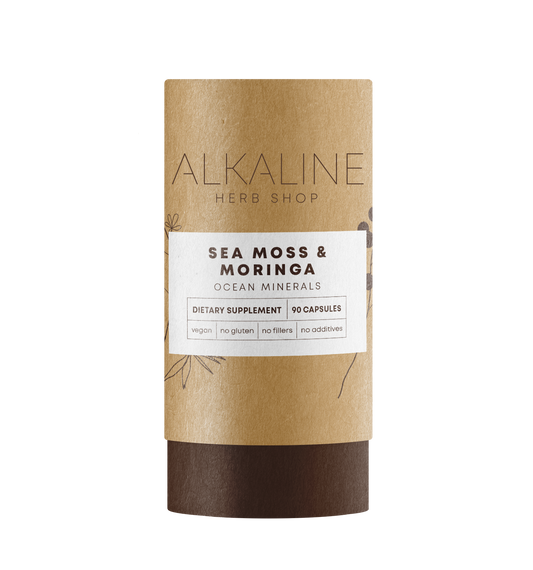
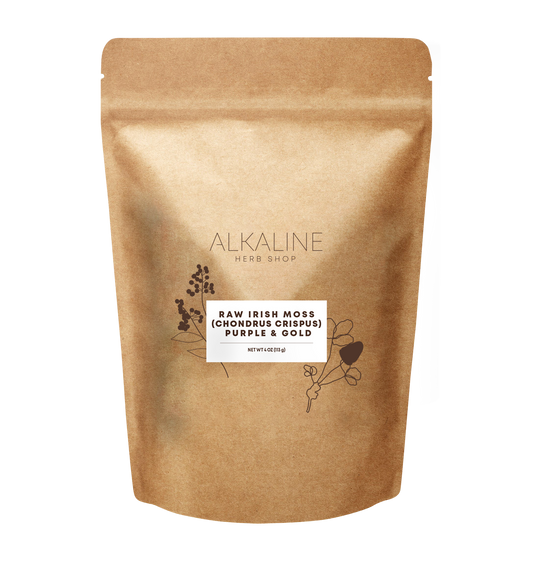
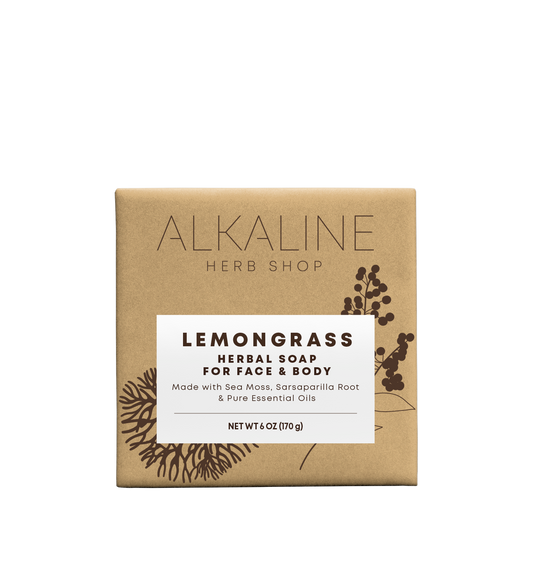
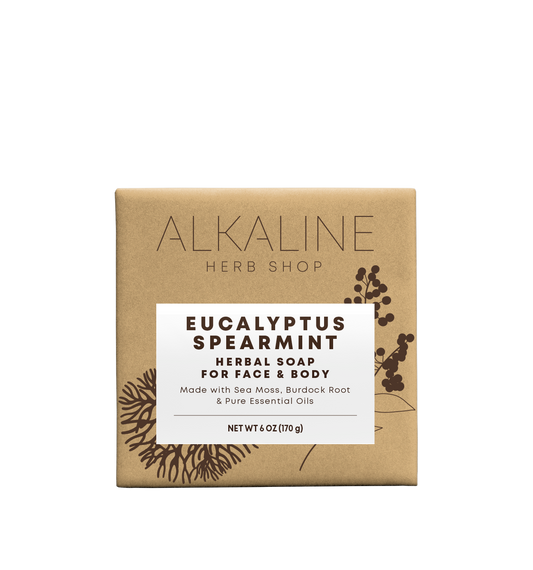
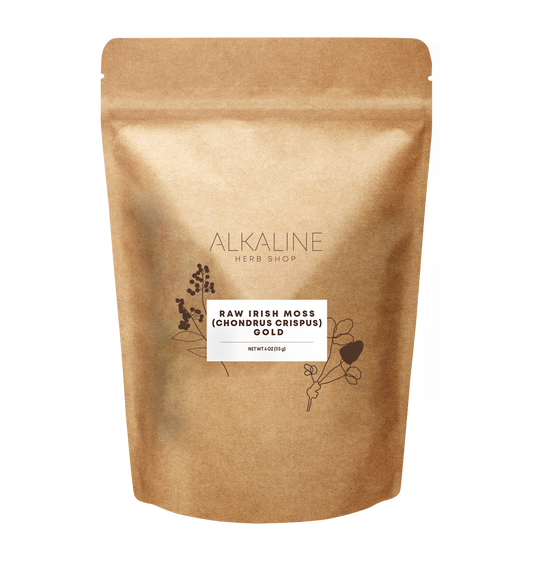
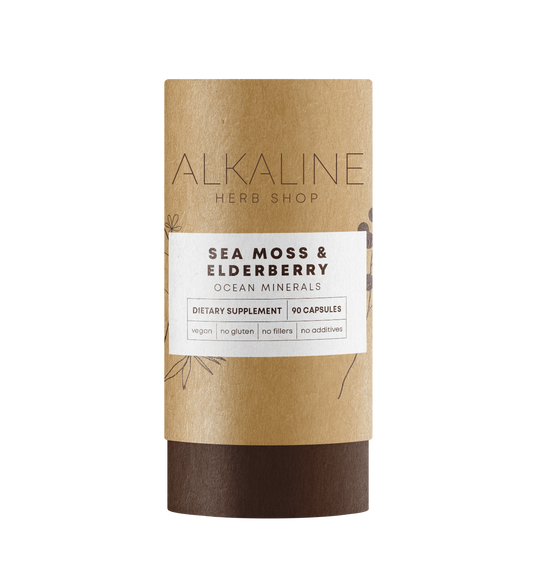
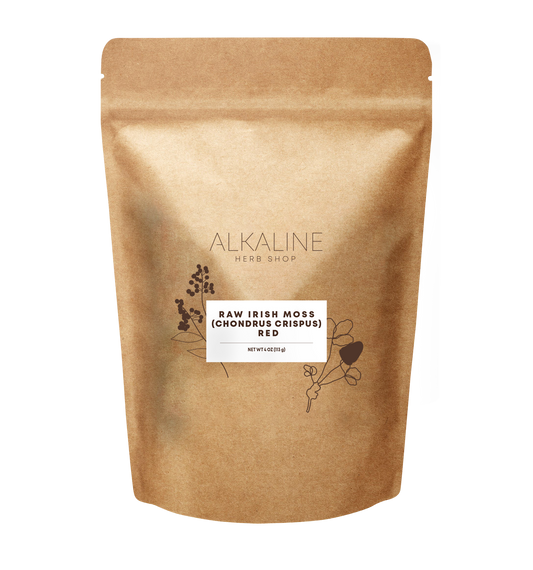
.png?v=14052428765372906161761701960) Previous Post
Previous Post
%20copy.png?v=62173825240595680121761701960)

